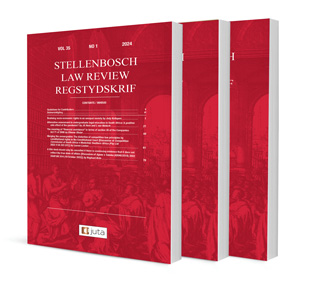Social justice as an antidote to poverty and inequality: 30 years into democracy, what still needs to be done?

Social justice as an antidote to poverty and inequality: 30 years into democracy, what still needs to be done?
Author: Kholeka Gcaleka
ISSN: 1996-2193
Affiliations: LLB LLM
Source: Stellenbosch Law Review, Volume 35 Issue 2, 2024, p. 93-114
https://doi.org/10.47348/SLR/2024/i2a1
Abstract
Thirty years after South Africa’s first democratic elections, the nation grapples with the paradox of being “democratic, yet unequal and impoverished”. This contribution examines the persistent socio-economic disparities that continue to plague South African society. Despite the progress made since apartheid, the deep-rooted legacies of injustice remain evident in the high levels of poverty and inequality. The concept of social justice, enshrined in the Constitution of the Republic of South Africa, 1996, is more than a moral imperative. It is a legally enforceable right that encompasses access to basic necessities like housing, healthcare, and education. However, translating constitutional promises into tangible improvements for the most vulnerable citizens remains a significant challenge. Social justice is not solely the responsibility of the Government. It is a collective mission for all South Africans to rectify past injustices and build a society based on democratic values, equality, and fundamental human rights. The role of institutions like the Public Protector of South Africa in upholding accountability and ensuring the protection of citizens’ rights is highlighted as crucial for the realisation of social justice.